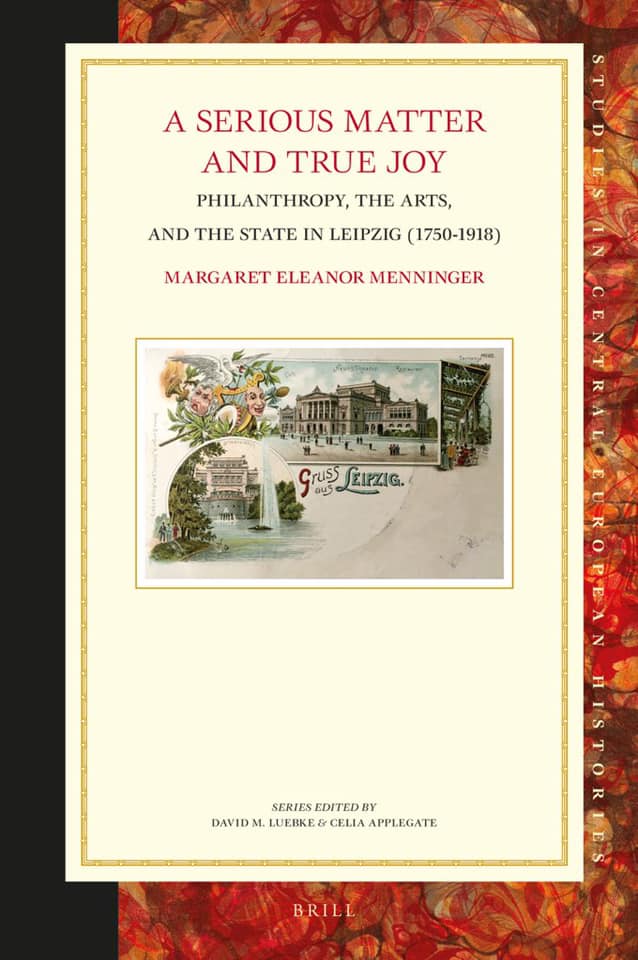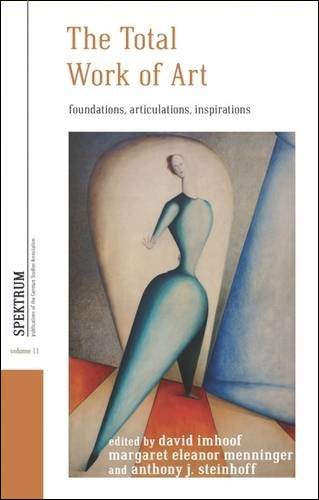Margaret Menninger

Professor
Office: TMH 214
Email: mm48@txstate.edu
Phone: 512.245.2188
Margaret Eleanor Menninger has been a member of the Department of History since 2000 and is the Executive Director of the German Studies Association. She is a former NEH Distinguished Teaching Professor in the Humanities. Menninger’s research interests include cultural philanthropy, civil society, and regional identity and bourgeois culture in Germany. Her book A Serious Matter and True Joy: Philanthropy, the Arts, and the State in Leipzig (1750-1918) appears with Brill Academic Publishers (Leiden/Boston) in the Spring of 2022. Her co-edited volume on the Total Work of Art appeared in 2016. Menninger has additional interests in the social history of music, cultural diplomacy and the history of Scandinavia, particularly Iceland. She is also an enthusiastic chamber musician.
Menninger was born in Cambridge, England, and grew up in Eugene, Oregon, and Iowa City, Iowa. She received her A.B. with honors from Harvard-Radcliffe College in 1986. Menninger was a Rotary Scholar at Georg-August Universität in Göttingen in 1986-87. Menninger has worked in publishing for both Houghton Mifflin Company in Boston and Carl Hanser Verlag in Germany. She received her A.M. and Ph.D. from Harvard University in 1991 and 1998 respectively where her research was supported by the German Academic Exchange Service and the German Historical Institute in Washington, D.C.
Select Publications
 A Serious Matter and True Joy:
A Serious Matter and True Joy:
Philanthropy, the Arts, and the State in Leipzig (1750-1918)
Margaret Eleanor Menninger
 The Total Work of Art: Foundations, Articulations, Inspirations
The Total Work of Art: Foundations, Articulations, Inspirations
Edited by David Imhoof, Margaret Eleanor Menninger, and Anthony J. Steinhoff
Editorial: Bad Movies, Good History
Exhibit Review: Biedermeier: The Invention of Simplicity
Courses Taught
Undergraduate Courses
HIST 2320 | Western Civilization Since 1500
History 2320 is a writing-intensive introduction to the history of the West since the sixteenth century, including the wars of religion, the rise of the modern state, the Enlightenment and eighteenth-century revolutions, industrialization and imperialism, the rise of socialism and fascism, the Cold War, and the post-modern world. In different terms, targeted discussions and short essays have covered topics such as Absolutism, the French Revolution and Human Rights, Romanticism, and the origins of World War One. Longer assignments have included semester-long investigations in the history of a specific city (unique to each student) to allow students to use a case study to consider the larger themes of Western Civilization in specific context.
HIST 3310 | Europe 1815-1919
This writing-intensive course examines European history during the so-called "long" nineteenth century, from the Napoleonic wars to WWI. After a month of intensive attention to national histories, the bulk of the semester dealt with important themes in a comparative context (for example industrialization, urbanization, nationalism, imperialism, socialism and gender). Required readings for in-class discussion included political tracts (The Communist Manifesto), plays (A Doll’s House) and diplomatic correspondence from the 1914 July crisis. Longer essays required the construction and justification of a set of “key” dates for a single country, contextual and historical analysis of literature (Emil Zola), and discussion of specific historical problems (e.g. Italian and German unifications or women’s suffrage).
HIST 3311 | Europe Since 1919
This writing-intensive course considers Europe in the “short” twentieth-century. Primary themes include nationalism and its construction, conflicts between ideals of liberal capitalism and those of planned economies, conflicts between ideals of political control of the many vs. political control of the few, and questions about European identity. Discussion and writing topics have varied from year to year but have included biographies, memoirs, novels, and films. Students will be work on a semester-long writing project on a topic chosen from a list of twelve broad subjects including: genocide and ethnic cleansing, gender and consumption, class, decolonization, music and modernity, and soccer.
HON 3393J | Sex, Drugs, and Cabaret - Europe 1880-1914
This writing-intensive interdisciplinary seminar considers European life in the years around 1900 with particular emphasis on contemporary social, cultural, and political tensions. These crisis points (for example the urban experience and technology, nationalism and anti-Semitism, and sexuality and the law) are explored using historical, legal, literary, musical, and visual sources.
HIST 4336 | Germany 1815-2000
This course covers German political, social and cultural history using a combination of lectures, discussions and group activities. The class is focused to a large extent around the question “What is Germany?” the answer to which changes dramatically over the course of the two centuries covered. Over the years, students have written essays on specific biographies or on a combination of monographs, memoirs and films.
HIST 4337 | Germany and National Socialism 1918-1945
This is an advanced survey course of German history and the Nazi movement. Topics covered include the Weimar Republic, Hitler’s rise to power, everyday life in Nazi Germany in peace and war, the Shoah and its legacy.
HIST 4350W | The Great War
This course covers the history of the First World War. Co-taught, the class examines the following topics: diplomatic origins, course of the war on the battlefield, changes in military technology, effect of Total War on the home front, propaganda, and legacy.
HIST 4399 | Senior Seminar
A discussion-based capstone seminar, this course aims to insure that history majors possess the basic techniques associated with the serious study of history. Such skills include the ability to appreciate the nature of historical inquiry, understand the methods historians use to develop historical knowledge, read and interpret complex historical materials, and undertake basic historical research and writing. The seminar centers on the writing of a twenty page research paper that relies on both primary and secondary sources. Themes for the course focus on aspects of either nineteenth- or twentieth-century Europe.
Graduate Courses
HIST 5310 | Europe 1915 to Present
A discussion-based graduate seminar, this class is intended for students who may or may not have previous experience in European history. With a different focus each time, e.g. selected topics in European history or a focus on just nineteenth- or twentieth-century Germany, the class is a based on close reading and analysis of scholarly articles and monographs.
HIST 5361 | General Historiography
This seminar will familiarize students with historians and schools of historical thinking as represented in the fields and disciplines of the Texas State faculty. Students will lead discussions and write book reviews and a longer paper dealing with a specific historiographical problem.
